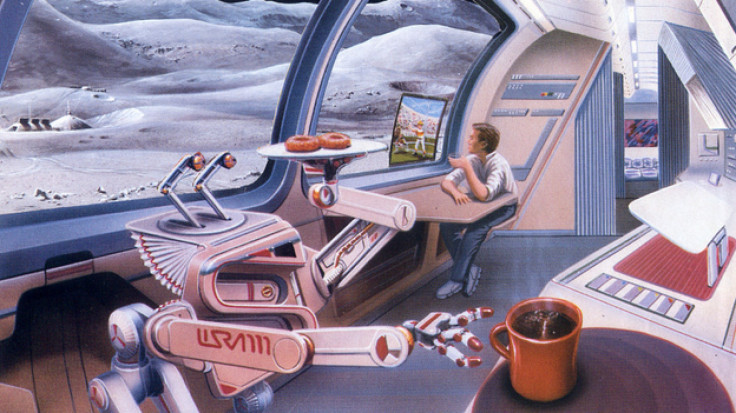PayPal, SETI Launch Program To Explore Space Currency

When you're packing for your Mars trip 40 years from now, what will you put in your wallet (assuming we haven’t reached a post-scarcity state of civilization that renders currency obsolete): cash or credit cards?
Most science-fiction universes envision money surviving after space travel. Luke Skywalker and Obi-wan Kenobi offered to pay Han Solo 17,000 imperial credits for passage to Alderaan in "Star Wars"; the ragtag smugglers in “Firefly” work for untraceable platinum rather than the government-sanctioned paper and credits; Ferengi traders of the "Star Trek" universe prefer bars of gold-pressed latinum. And now that we're actually entering the era of commercial space travel, PayPal is addressing what the currency of space will look like.
On Thursday, the online payment giant announced PayPal Galactic, a collaboration with the SETI Institute aimed at developing new payment systems for the final frontier. The frontier is here: The California company XCOR Aerospace is looking to offer suborbital flights for customers in 2014; Virgin Galactic is launching its first public flight this Christmas (Brad Pitt, Angelina Jolie and Ashton Kutcher are rumored to be among those who’ve already plunked down $200,000 each for a ticket); and space hotels could be in orbit around Earth as early as 2016.
“As space tourism programs are opening space travel to ‘the rest of us,’ this drives questions about the commercialization of space. We are launching PayPal Galactic, in conjunction with leaders in the scientific community, to increase public awareness of the important questions that need to be addressed,” PayPal President David Marcus said in a statement. “We may not answer these questions today or even this year, but one thing is clear: We won't be using cash in space.”
NASA astronaut Buzz Aldrin, the second man on the moon, is also on board with PayPal Galactic. Aldrin says he expects humans to make it to Mars within his lifetime. But for people to truly put down roots in space, they’ll need to pay for things, he says.
“Trips to Mars, the moon, even orbit will require we provide astronauts and astro-tourists with as many comforts from home as possible, including how to pay each other,” Aldrin said in a statement. “Whether it’s paying a bill, even helping a family member on Earth, we’ll need access to money.”
There are lots of questions about what form a space-friendly money system might take. Will it be truly cash-free? Will spaceships and habitats have the communications technology needed to transfer money? How will banks manage accounts for people living off-planet? How will government financial regulations pertain to people in space (perhaps to curtail a new kind of “offshore banking”)?
SETI Institute researcher and astronomer Jill Tarter said collaborating with PayPal-- which led the charge for online payments since its founding in 1998 -- was a natural fit.
“When the SETI Institute succeeds in its exploration of the universe, and as we find our place among the stars, PayPal will be there to facilitate commerce, so people can get what they need, and want, to live outside of our planet,” Tarter said in a statement.
© Copyright IBTimes 2024. All rights reserved.











